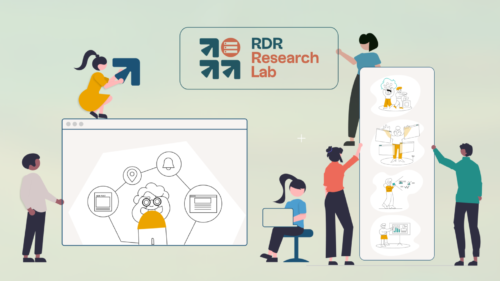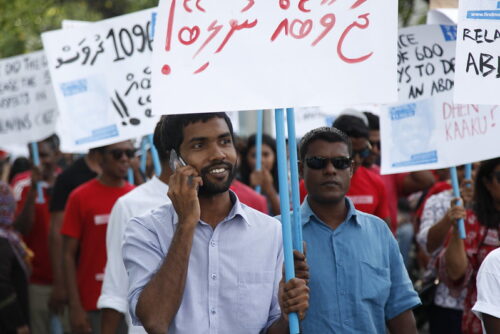It’s been less than one month since Twitter officially became the plaything of billionaire Elon Musk. In that time, the company that topped our 2022 Scorecard has gone a long way toward unraveling much of the work that recently earned it our top spot.
In other words, Musk has already proven our worst fears about his management of the platform. A decade ago, many in the top echelons of Twitter saw the platform as the “free speech wing of the free speech party.” Yet, since then, the company made a concerted effort to improve both its enforcement of rules and its transparency. A lot of this seems out the window now. For one, Musk has gotten rid of the entire human rights team and other experts on international human rights standards. Twitter, like other platforms, had in place a practice of pushing back against calls for violence from government actors and their attempts to block content. Twitter’s ability to do both these things is severely curtailed. Musk also introduced an $8 fee for “verification” that many worried could imperil the work of journalists and activists. This new feature was paused on Friday after an immediate proliferation of impersonations of high-profile accounts.
On the platform in question, RDR’s Jan Rydzak has a must-read thread on these and other ways Musk is already turning Twitter into a paragon of “pay-for-play anarchy.”
Is a boycott from advertisers, Twitter’s real customers, now the only way to hold the “Chief Twit” accountable for respecting democracy and human rights? This is the question RDR’s Policy Director Nathalie Maréchal asks in a piece for our home institution, New America.
Unfortunately, that may just be the case. That’s why RDR has joined more than 60 other civil society groups in calling on Twitter advertisers to demand that Musk #StopToxicTwitter.
But if advertisers have that kind of power, that’s only because the system is rotten. At the heart of the problem, Nathalie points out, is that a profit-seeking entity dependent on advertising revenues can never be a truly democratic digital public square. This is true whether or not Musk decides to run Twitter with profit in mind, or by enacting his own murky concept of “freedom,” in other words his own personal whims. (We’ve already seen that parodies of Musk seemingly aren’t protected by his version of the First Amendment.)
Social media companies are thus “trying to square an impossible circle”: provide what billions of people have come to see as an essential public service while delivering returns to shareholders. And taking Twitter private won’t free the company of this issue: Repaying the banks who underwrote the sale could cost up to $1 billion a year, The New York Times has reported.
As Nathalie explains, and as RDR has pointed out time and time again, any business that relies on pervasive and sustained human rights violations will only foster more abuse. And this is very much the case with surveillance advertising. Algorithms optimized to make sure users click as much as possible, to see as many ads as possible, necessarily lead to a major decline in the quality of our information. Yet, moderating content at scale in a responsible way is extraordinarily expensive, and the money has to come from somewhere.
For this reason, RDR will be watching with a close eye the seeming mass migration from Twitter to Mastodon. Might Musk’s disastrous first days as Twitter head be the spark that pushes us to seek out new more democratized and decentralized communications systems? And if so, what new business models will emerge to fund them? Only time will tell.
Red Card on Digital Rights at the 2022 World Cup

As the 2022 FIFA World Cup approaches, RDR has teamed up with Arab digital rights NGO Social Media Exchange (SMEX) to launch a three-part series, “Red Card on Digital Rights.” The series investigates the state of the internet and digital surveillance in host country Qatar, amid a slew of criticism over the country’s human rights record.
Read Part One of “Red Card on Digital Rights.” →
See also how SMEX adapted RDR’s methodology to analyze the policies of the Hayya app, which is required to attend the games, and the risks it poses to users’ privacy.
Read more from SMEX on how the Hayya app falls short in protecting user privacy.
The RDR Research Lab Is Finally Here! How We’re Helping Grow the Global Tech Accountability Movement

For years, civil society organizations across the world have been adapting RDR’s standards to highlight how a lack of platform accountability affects digital and human rights in their home countries.
In October, RDR launched a new online learning hub for digital rights researchers and advocates who wish to join them and launch their own project to keep digital platforms, telecommunication companies, and other digital service companies accountable to users and to the public, anywhere in the world.
The site guides researchers through the process of designing, executing, and promoting research on platform accountability using RDR’s methodology and standards. This guide is based on our experience producing the RDR Corporate Accountability Index and Big Tech and Telco Giants Scorecards, as well as on feedback from civil society partners who have published their own RDR-style reports.
Read more from RDR’s Global Partnerships Manager Leandro Ucciferri about the Lab. →
How RDR’s Standards Are Being Used in Some of the Most Precarious Spots for Digital Rights

Photo by Dying Regime via CC 2.0
This year, in South and Southeast Asia, EngageMedia and other local digital rights organizations worked with RDR to investigate the policies of local telcos, as well as the subsidiaries of telco giants like Orange, within the context of the digital security issues faced by human rights defenders in the region.
The dramatic growth in the use and availability of mobile broadband across Asia has meant unprecedented access to new tools like email, messaging apps, and social media for the region’s human rights activists. But this has also resulted in the growth of online attacks to intimidate those fighting injustice, including female journalists, indigenous youth, and LGBTQ activists.
With governments around the world failing in their duty of protection, corporate accountability has become an increasingly important tool for civil society actors looking to enhance digital rights.
Digital Rights Dialogues: Hear Directly From People Holding Platforms Accountable for Human Rights

Our research lab features interviews with the advocates and researchers already using RDR’s standards to keep platforms accountable, including in some of these most critical spots for digital rights.
In September, protests erupted across Iran following the death of 22-year-old Mahsa Amini, who died in police custody after being arrested for “improperly” wearing her hijab, according to the country’s “morality police.” This mass mobilization was sparked over social media, where news of the death spread rapidly. Yet, in response to ongoing protests, online organizing has been met with internet shutdowns and app outages.
We recently published an interview with Roya Pakzad and Melody Kazemi, of Taraaz and Filterwatch, whose 2020 report evaluated the policies of four popular local and two international (WhatsApp and Telegram) messaging apps in Iran.
In this conversation, they discuss the longstanding use of government shutdowns, the Iranian government’s efforts to push citizens onto government-controlled apps, the proposed “User Protection Bill” that threatens to further block access to social media and the web, and the importance of the country’s corporate accountability movement.
Read more from Roya and Melody about the state of digital rights in Iran. →
RDR Media Hits
The Washington Post: The Technology 202 covered Fight for the Future’s “Make DMs Safe” campaign calling on tech platforms to implement end-to-end encryption by default, which RDR joined. The article quotes RDR Policy Director Nathalie Maréchal: “I think most people don’t understand that if they communicate through, say, Facebook Messenger … that it’s not actually private.”
Read More at The Washington Post
Consumer Reports: RDR Policy Director Nathalie Maréchal was quoted in a new report from Consumer Reports on how Facebook ads target vulnerable users with harmful supplements: “Facebook should police ads far more strictly to keep potentially harmful information or products off its platform.”
Recent Events
Global Voices | Can citizens of democracies still trust the law?
RDR Program Manager Vezsna Wessenauer joined a Global Voices panel to discuss how governments are increasingly using the law to infringe on citizens’ digital rights.
Save the Dates!

December 5: Save the Date for the First Edition of RDR’s Telcos Giant Scorecard!
December 7: Save the Date for our TGS Launch Event!

Support Ranking Digital Rights!
If you’re reading this, you probably know all too well how tech companies wield unprecedented power in the digital age. RDR helps hold them accountable for their obligations to protect and respect their users’ rights.
As a nonprofit initiative that receives no corporate funding, we need your support. Do your part to help keep tech power in check and make a donation. Thank you!





